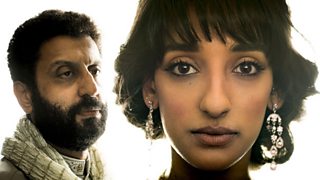Murdered By My Father: Asking the experts
Marco Crivellari
Development producer, Murdered By My Father
Tagged with:

Imagine that you fell in love with a girl. Imagine she fell in love with you too, but her parents didn't approve of you.
Imagine they killed her because of your relationship with her.
The issue of honour, and its transgressions, is a difficult thing for most people to understand. But it’s very easy to imagine that if your girlfriend were killed because she wanted to be with you, you'd feel grief-stricken, and traumatised, and maybe even guilty too. And you might feel scared as well - because the kind of people prepared to kill their own daughter to preserve their sense of honour might well want to do the same to you.
So when the �������� Documentaries department embarked on making a drama about honour killing, we had some very real issues to consider. The sensitivities of some very damaged survivors, for one, and their safety too. We knew for all these reasons we couldn't make a drama based solely on one true story. But we also knew that we wanted our drama to be very powerfully anchored in truth. So what to do?
We turned to the experts - the psychologists who deal with the consequences of honour-based violence; the police who pursue the culprits, and the charities that help the victims. In IKWRO, the Iranian Kurdish Women’s Rights Organisation, and Karma Nirvana, we found patient, supportive and attentive guides into the world of honour-based violence. They provided us with case studies, and put us in contact with women who had themselves been victims of violence, or friends of girls who died at the hands of their own family.
Their own family. The very people they trusted most to protect them. And maybe in some terrible way - some way we could half-glimpse through our research, even as we recoiled from it - these families really did think that they were protecting their daughters. Because in their minds the reputation of their girls - and of the families they supposedly represent - is so crucial, and the disapproval of their communities so crippling, that it really would be better to kill them than to sacrifice their 'honour'.
It's difficult to conceive of, let alone sympathise with, but we were convinced that to make a film about the horror of honour killing, we had to try to get into the mind of the perpetrators in some way – to have any hope of understanding honour killing, we would have to try to understand those who committed these awful crimes.
Parents are controlling the world over, and love is a sometimes scary, rebellious force. But this was control taken beyond any reasonable boundary, into places of horror and tragedy.
As we built up our research, we opened a two-way communication with our writer, the brilliant Vinay Patel, so that what he wrote was informed by what we had learned, and what we asked was prompted by his questions. Was what he wrote inspired by real events? Yes. But it was not a drama based on a real story, it was a drama about honour killing as it happens, and continues to happen, in the real world. The girls who are killed for honour - and the victims are far more likely to be women than men – come from a range of communities, ethnicities and religions. They are our friends, our colleagues, our schoolmates – their deaths concern all of us, and we have to understand why they happen.
And it happens a lot – more than any of us imagined when we embarked on the project. As IKWRO and Karma Nirvana informed us, nearly 12,000 cases of 'honour-based' violence have been reported in the UK since 2010, including abductions, beatings and an estimated 60 murders – only estimated, because many of the victims of honour-based crime simply disappear on ‘holidays’ to distant homelands that they may never even have seen before. We all of us felt a heavy weight of responsibility to those women as we made this film. They were British girls desperate to resolve the contradictions between the morality of their home – the home they grew up in, Britain – and the morality of a place their parents left behind. It’s awful even to try to imagine the anguish and the terror they must have felt in their last moments, as the people they loved most took their lives from them.
The film we've made is for them, and we only hope that it does them some justice.
Marco Crivellari is Development Producer for Murdered By My Father.
- Murdered By My Father is due for release on in late March 2016.
- Read more about the programme in on the �������� Media Centre website.
- See a clip from 'Murdered By My Father' in a .
